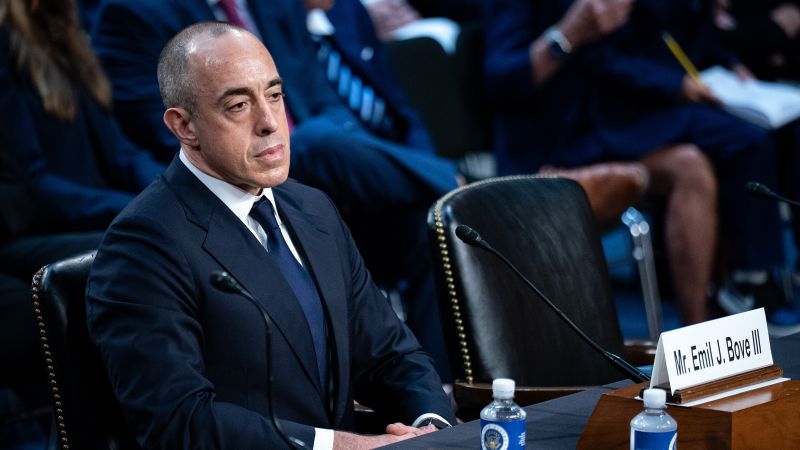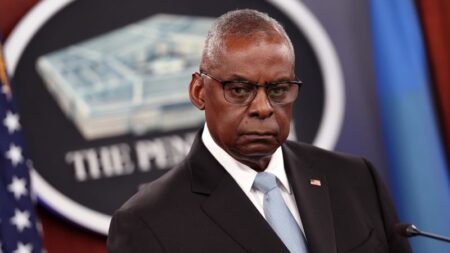The recent revelations concerning Emil Bove, a nominee for a lifetime appointment to an appellate judgeship, have ignited significant controversy within the Senate Judiciary Committee and beyond. This scrutiny heightened when the committee’s top Democrat, Senator Dick Durbin, disclosed compelling documentation supporting allegations made by Erez Reuveni, a former federal prosecutor and immigration law specialist. Reuveni had claimed Bove, a prominent Justice Department official, had brazenly instructed his colleagues to disregard court orders prior to a contentious immigration operation in March. Such allegations raise critical questions about the integrity and ethics of those nominated for federal judicial positions, particularly in light of Bove’s connections to the Trump administration.
Erez Reuveni alleged that just a day before the Trump administration took actions involving the controversial Alien Enemies Act—sending planes to deport migrants to El Salvador—Bove convened a meeting with several Justice Department lawyers. This meeting allegedly featured Bove making disparaging remarks about the federal judiciary, explicitly suggesting that they should tell the courts to “f**k you” and ignore instructions aimed at halting the expedited deportations. Reuveni’s role as a whistleblower is underscored by his dismissal from the department, highlighting the risks taken by individuals who speak out against potentially unethical conduct within federal agencies.
Bove’s background only amplifies concerns regarding his nomination. Formerly a personal attorney to President Donald Trump, his ascent to a judicial position is under intense examination, particularly because he has minimal judicial experience typically expected for appellate court nominees. Furthermore, ethical inquiries have emerged regarding his involvement in prior immigration cases and alleged efforts to dismiss a criminal corruption case against New York City Mayor Eric Adams. Combined with the incendiary claims surfacing from his meetings at the Justice Department, Bove’s nomination has transformed him into a pivotal figure in the ongoing debates about judicial accountability and executive excess.
The events surrounding the March immigration operation, which led to a federal judge intervening by commanding the administration to reverse its deportation efforts, have implications extending well beyond the immediate controversy. The government’s aggressive maneuvers to exploit presidential wartime powers to enforce immigration policies invite accusations of blatant disregard for judicial authority. The handling of such cases potentially reflects a broader trend of undermining judicial independence—representative of the tensions that characterized the latter years of the Trump presidency.
Further complicating matters, Justice Department officials have publicly denounced the claims made by Reuveni, with Deputy Attorney General Todd Blanche labeling them as “false.” During Bove’s confirmation hearings, he denied recalling making the alleged objectionable remark, which only adds to the ambiguity surrounding his character and judgment. However, confidential communications obtained by Senator Durbin strongly suggest that the resistance towards adhering to court directives is not isolated, as the messages exchanged among Bove’s colleagues indicate a shared sentiment of defiance against judicial oversight.
The shared communications not only lend credence to Reuveni’s accounts but also reveal an alarming atmosphere within the Justice Department. In various exchanges, government lawyers acknowledged their reservations regarding the veracity of representations made to the court, raising ethical red flags regarding the department’s conduct during these proceedings. The implications of these findings have prompted Durbin to issue a bold statement that underscores the gravity of the situation, declaring that Bove’s alleged comments signal a dangerous precedence that should render him unfit for a judicial role.
In summary, the trajectory of Emil Bove’s nomination to the federal bench is intricately tied to issues of judicial integrity and ethical standards within the Justice Department. As Senator Durbin articulated, the issues at stake extend beyond mere obscenities; they encapsulate a fundamental challenge to the integrity of the judiciary itself. If Bove’s past actions reflect a troubling pattern of dismissing judicial determinations, then his nomination raises critical questions about the values that the federal judiciary must uphold—a discourse that will likely endure as the Senate grapples with his confirmation.











